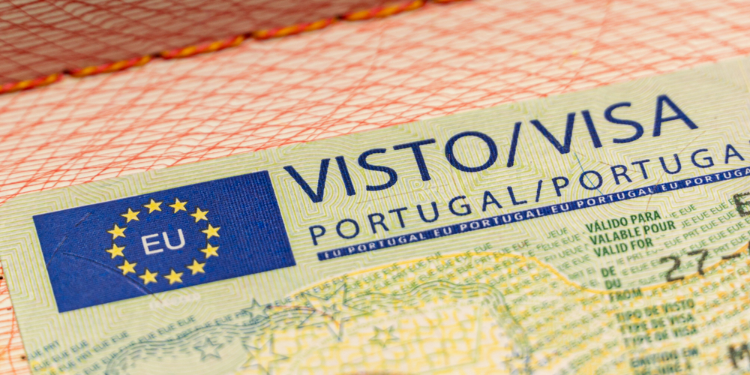
On Thursday, August 4, 2022, Portuguese President Marcelo Rebelo de Sousa issued a new "legal framework of entry, permanence, exit and removal of foreigners into and out of the national territory." How will these changes affect expatriates and people who are looking to relocate to Portugal? How will this affect immigration to Portugal?
The new legal framework for immigration in Portugal
On July 17, 2021, member states of the CPLP, Comunidade dos Países de Língua Portuguesa (Community of Portuguese Language Countries), met in Luanda (capital of Angola) and signed an agreement on migratory mobility. On July 21, the Portuguese Socialist Party, the Portuguese Communist Party, the Left Bloc, and Libre, (Portuguese eco-socialist party) voted for the reform. On the other side, parties like the Social Democratic Party, Liberal Initiative, PAN (People, Animals, Nature) abstained. Chega, a far-right party, did not attend the vote. The reform was approved, and the president promised rapid implementation. But what are the provisions of this new immigration law?
A different visa procedure for CPLP nationals
The first major change in the new visa procedure is about the greater importance granted to the Community of Portuguese Language Countries. From now on, temporary visas and residence visas for CPLP members may be issued without prior consultation with the Foreigners and Borders Office (SEF).
By default, non-Schengen residents in Portugal must first register with the SEF before entering the country. This would usually apply to applicants from CPLP member states that do not belong to the Schengen area. As a matter of fact, among the founding states of the CPLP Community (in 1996) are Angola, Cape Verde, Guinea-Bissau, Mozambique, Brazil, and São Tomé and Príncipe. East Timor joined the Community in 2022 and Equatorial Guinea in 2014.
With the new law, citizens of these states will no longer need the opinion of the Aliens and Borders Office for their visa applications. But this adjustment does not take away the powers of the SEF. It is only a matter of enforcing a point in the Luanda Agreement.
Redressing past mistakes?
In his August 4 speech, the Portuguese president emphasized on: "Putting the mechanism in place as soon as possible, [...] an idea shared by Cape Verde and Portugal [...] because this represents the recognition of a past merit that we owe to Cape Verdeans in Portugal [...]".
Like Cape Verde, most CPLP member states are former Portuguese colonies. They still bear historical scars from those times and were skeptical about Portugal's willingness to redress, until the reform's enactment. That is why President Marcelo Rebelo de Sousa who wants to expand the CPLP's influence, insists on calling this a "mini revolution" that will create new exchanges between the countries.
More than just a community of heads of state, he wants CPLP to evolve into a "community built by its peoples, who have sometimes been present in Portugal for a long time, but illegally.”
Regularizing foreign labor
The other change in the law concerns policy on illegal immigration. Through this reform, the Portuguese government hopes to promote the integration of foreigners already present on the territory and involved in the local community (they speak Portuguese and have a job).
With Portugal gradually becoming a new migration hub for tens of thousands of immigrants, including undocumented migrants, the new legislation is thought to fight illegal immigration while taking advantage of a qualified workforce. Moreover, while things have accelerated since the 2015 Syrian crisis, the number of immigrants to Portugal jumped by 70%, between 2015 and 2020. Portugal's situation moved from being a land of emigration to a land of immigration, and even a migratory "hub" like the United Kingdom, France, or Germany. However, at the same time, the country has been losing its nationals, who prefer to move elsewhere in Europe for work. This is the effect of European citizenship and the Schengen Agreement, which allows any citizen of a member state to travel freely within the Schengen area.
A new visa for workers?
As a response to its labour shortages, the government is considering the creation of a new fixed-term visa for expatriates who wish to work in Portugal. This would lead to easier procedures to obtaining a temporary permit. The new visa will also be beneficial to family members having specific skills, and for remote workers as well. Furthermore, although the Portuguese government has already implemented a temporary visa for freelancers and entrepreneurs, it wants to keep in the loop with the ongoing work organization revolution, following the boom of remote working and digital nomadism. As such, this new visa should be more specifically addressed to remote workers.
Are there any changes for expats in Portugal?
In principle, there should be no change for legal expatriates in Portugal. Their legal status is not questioned, unlike people who are looking to relocate there, legally or illegally. However, considering that Portugal is currently facing labor shortages like many other countries, it is looking to attract international talent. Therefore, Portugal remains one of the top expat destinations, especially for those who are looking to work abroad. The other good point is the strengthening of relations between the member states of the Community of Portuguese Speaking Countries, which is considered as a win-win situation. Still, it may be too early to assess its success as President de Sousa himself recognizes "some inaccuracies" in the new law's provisions.



















